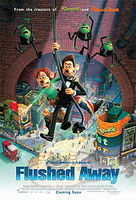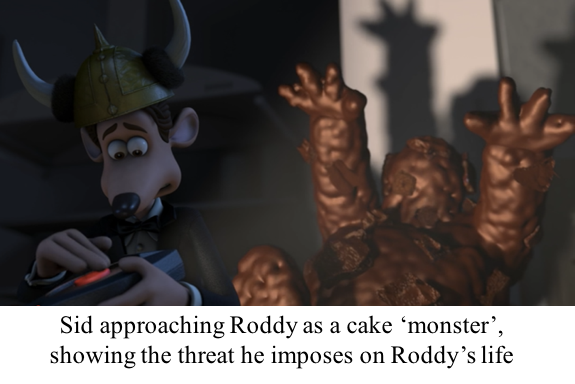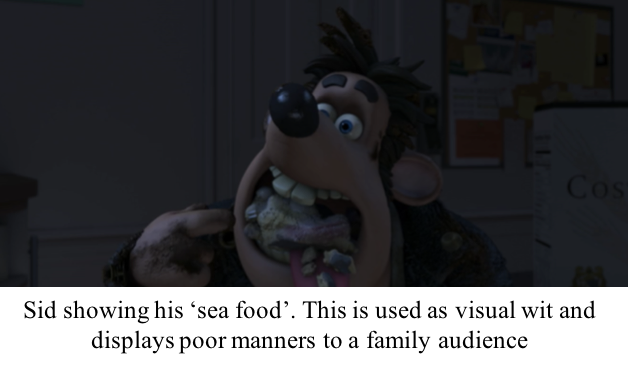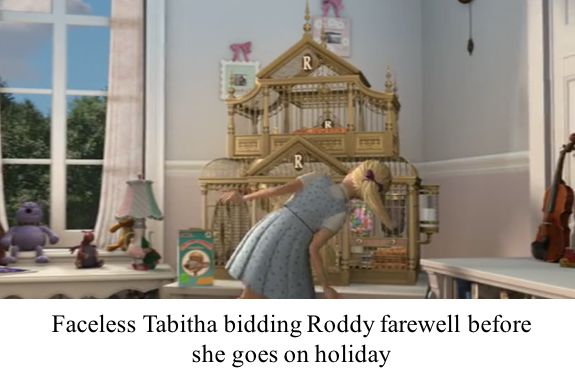
Within Flushed Away, the scene of Roddy meeting Sid for the first time utilises their anthropomorphism to project, not only social class, but bullying societal pressures and to scrutinize those who do not conform.
Illustrating Roddy’s adopted social class is the way in which he is anthropomorphised, assuming the role of the upper class. However, Roddy’s upper class characteristics in rat society does not give him higher social standing, but instead makes him considerably different, and physically isolated. He resonates closer to the character trope of a misfit, naive child than the pompous upper class man. Whereas, Sid is anthropomorphized as the lower class with his introductory belch, punk clothing, and careless attitude. At first glance, he provides the audience with comic relief, alongside the childish excitement he gains from entering a mansion. However, although the film tries to teach the audience the value of family and friends over material goods, Sid enjoys Roddy’s lavish lifestyle so much that he ends up ejecting Roddy from his own home.

As a fat, lower class rat, Sid is shown as a greedy and invasive force. Roddy is rightfully scared and threatened by this, yet the audience is expected to laugh over Sid’s “chocolate buttons”, disrespect for Roddy’s property, and rude manner. Therefore, the representation of Sid as the likeable lower class is undermined by his destruction of property owned by the upper class as amusing, and the assumption that he has the right to do so. Whereas, Roddy, an isolated, lonely rat, who is respectful of his property is mocked and treated poorly. Rather than a theme of acceptance and friendship within this first scene, the audience sees exclusion and bullying behaviour that they are expected to encourage and laugh at, undermining the intended heartwarming moral.

The human-animal relationship between Roddy and his owner, Tabitha, is crucially missing. The audience is never shown Roddy’s life, so is not possible to understand why he would want to change it; yet all that is given is the omission that Tabitha leaves an excessive amount of food to Roddy and is in the end replaced by fat Sid. Also, it is obvious through the amount of food that she leaves him that she cares, almost, too much, about Roddy’s wellbeing. There is evident disregard to the close bond between human and pet, so the film therefore assumes that Tabitha will assume Roddy ate to much and not register that he is a completely different creature.

As a rat, his suit separates him as someone who lives an unusual lifestyle, different from the masses living life in the sewers.However, in the face of constant scrutiny that begins in this scene, he abandons his comfortable life and relationship with Tabitha, and conforms to a life ‘flushed away’. Thus, Sid becomes the face of societal pressures in the guise of a belching, cheeky, fat rat that disrupts the lives of individuals that do not conform, driving them out of their individual nature until they do.